Keep Your Metabolism Strong and Hormones Balanced Over The Holidays – A Naturopathic Perspective12/18/2019  Do you have big plans for January? Many of our patients say they’d like to take control of their health in 2020 (New Year, New You, right?). That often includes losing some extra pounds. However, it’s always important not to get caught up in the numbers on the scale. Instead, a good alternative goal is to focus on lowering your body fat (but only if that would help your general health) and raising your energy levels. In other words, your goal should always be to improve your overall quality of life, not to chase after an often-elusive number on a scale. No matter why you want to lose weight, it’s important to approach your New Year’s resolution with a strategy. That will raise your odds of success. (Here’s a sobering fact: About 80 percent of New Year’s resolutions are abandoned by February.) The Run-Up to the New Year Think about it. We often coast through December, eating, drinking, and neglecting our usual fitness routine. Then January arrives and we expect our body to adjust to an austere new regime. It’s no wonder that many people give up. Believe it or not, it’s possible to prime your body to get ready for January’s resolutions/yourreallife while still enjoying the holidays. That includes revving up your metabolism so it’s ready to deal with dietary changes. And it’s even possible to do this during the busy month of December. Here are some steps that can help. 7 Ways to Avoid Packing On Extra Pounds This Holiday Season
Yes, improving your metabolism can feel like a daunting task this time of the year. However, taking a few simple steps now can help get ready to meet your New Year’s resolutions head on! If you’re not sure how to begin with all these tips, the best plan is to speak with an expert! We’d be happy to help you create a unique plan that suits you and would love to have a complimentary Health Discovery Session with you. Sources:
1 Comment
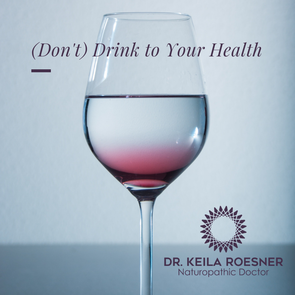 A glass of wine with dinner. A beer after a hard day of work. It’s not hard to integrate an occasional drink with a healthy lifestyle. Whole genres of music are written essentially about drinking (I come from a country music family!). In recent years, we’ve read that red wine is rich with antioxidants, and that an occasional beer can raise “good” cholesterol or stimulate lactation for breastfeeding mamas. But results from a new study suggest that even moderate alcohol consumption - the kind we tell ourselves is healthy - may actually be detrimental to our health. In other words, the much-heralded health benefits of drinking don’t outweigh the risks. As a result, there is no safe level of alcohol consumption. A recently published research study looks at data collected in almost 700 studies, spanning 195 countries and territories. Some of the findings are startling:
The authors of the study are firm in their conclusion: “By evaluating all associated relative risks for alcohol use, we found that consuming zero standard drinks daily minimizes the overall risk to health.” In other words, the only safe amount of drinks is none at all. This finding differs from many earlier studies, which often concluded that moderate drinking was the best approach. Why did this study reach a more decisive conclusion than previous examinations of alcohol’s effect on health? Several factors come into play. This study was careful to consider the ways they measured consumption. For example, researchers looked at regional variations in alcohol consumption that could be attributed to things like tourism. In addition, the study looked at alcohol’s impact on 23 different health-related problems. For some of those problems (such as heart disease), mild alcohol consumption had a positive effect. But that positive effect was balanced by a greater negative impact on other health issues (cancer is a strong example). What does this mean for you? If you drink, should you stop? Alcohol consumption is a very personal decision. This study looked at the big picture, worldwide. It was not studying individuals, but rather analyzing vast amounts of data previously collected, specifically looking at the risks for the 23 health issues. That data was conclusive. But it’s up to you how you apply it to your own life. This latest study can’t, for example, tell you if it’s OK to have some wine for New Year’s given your own unique genetics and other lifestyle factors. One thing is clear: If you’ve told yourself that drinking is healthy, you may want to reconsider that rationale. That doesn’t necessarily mean you must immediately quit. However in deciding whether or not alcohol is something you want in your life, it’s best to be realistic about the health risks. If you’re wondering about alcohol, talk to a healthcare practitioner. And be upfront about your drinking during the visit. Many people underreport how much they drink, but it’s best to be honest. You want to have an open discussion about all of your health concerns. Remember that healthcare providers aren’t looking to judge you: they want to work with you to create your best life. You also want to look at your own medical history and perhaps check out more specific studies. For example, another recently published study concluded that alcohol is the biggest controllable risk factor for dementia. If you have other dementia risk factors that are out of your control, such as a genetic history, you may want take action on the things you can control. Similarly, if you have a history of depression, consider alcohol’s impact on mental health. If you are trying to control your weight, the extra calories of alcohol aren’t going to help. Alcohol can also lower your judgment and keep you from making your best decisions. Alcohol intake may also increase your risk of estrogen dominance, and is a well-established risk factor for breast cancer. Some patients express frustration at the different results they see in health studies: One minute something is good for you, then suddenly we need to avoid it! Studies on alcohol use can be proof that when we read an eye-catching health-related headline, we need to look beyond the numbers. One thing to keep in mind is that the media will typically seize the most dramatic sound bite, although it’s impossible to always convey the nuances of a well-run scientific study in a short headline. For example, a news story doesn’t always mention who funded the study. For the record, the Lancet study on alcohol safety was funded by the Bill and Melinda Gates Foundation, while some others that emphasized alcohol’s benefits were funded by companies who sell alcohol. That doesn’t necessarily mean the studies are false, but we should all remember the funders have a vested interest in how the results are reported. Follow the money! As well, correlation doesn’t always equal causation. That’s sometimes hard to capture in reporting large studies. In fact there are studies that show that Resveratrol an antioxidant found in red wine is beneficial to your health however if you have other health issues like digestion.htmlpoor gut function, low energy, sleep issues and more, alcohol will likely have negative impacts and could make your health issues worse. One can absolutely gather the benefits of resveratrol by eating organic grapes with the skin on, rather than drinking wine, without negatively affecting other health issues - but that doesn't make for sexy headlines! Whenever you’re confused about a health issue, the best approach is to consider it from a sample study of one: yourself. That means talking to a healthcare provider about your own personal history and choices and your current health concerns. We can help you sort through all of the information you face every day and figure out what’s best for your unique body, in fact we are experts in doing just that! Book your complimentary Health Discovery Consult to discuss YOUR unique health goals. References 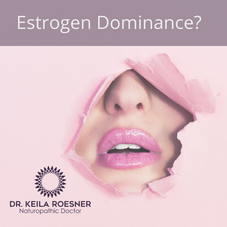 Estrogen – it’s not a dirty word. Estrogen plays an important role through the course of our reproductive lives and beyond. It regulates our menstrual cycle, strengthens our bones, controls our cholesterol, and much more. When our estrogen levels go “out of tune” we experience PMS or menopausal symptoms. But even before menopause, varying levels of this vital hormone can wreak havoc. That’s because estrogen requires a delicate balance with other hormones. When that balance is disturbed, we can experience a wide range of frustrating symptoms. This hormonal imbalance often occurs during a particularly busy time of our lives, the period from about age 25 through to menopause. As a result, our practice sees many women who are dealing with unexplained weight gain, mood swings, and libido problems. But there is help available. A few simple steps can help you restore balanced estrogen levels and feel like yourself again. How Do You Know if You Have Estrogen Dominance? Estrogen dominance can impact many areas of our lives, with symptoms that range from subtle shifts to major disruptions in wellbeing. Many women in this age group assume these issues are a normal part of aging or a consequence of their busy schedules. Just because it is common, does NOT make it a healthy normal! Even a slight imbalance in hormone levels can lead to a number of problems. Symptoms can vary greatly by person, but often include:
Does that list look familiar? I see many women in my practice each month with complaints like these. I totally understand how frustrating they can be, especially when you’re unable to find effective treatment. And, of course, the complex relationship between estrogen and our emotions can only magnify the frustration. Who wants to feel irritated about feeling irritable? It’s not only women who can experience estrogen dominance. You may be surprised to know that men can suffer an excess of estrogen as well. In men, estrogen dominance can manifest a bit differently, with some of these symptoms being common:
What Causes Estrogen Dominance? To understand estrogen dominance, we have to consider the role of another important hormone, progesterone. Progesterone and estrogen maintain an often tricky seesaw in our bodies. Prior to menopause, the balance shifts at different stages of the menstrual cycle. Estrogen dominance isn’t necessarily a surge of estrogen, but an imbalance in that seesaw. Simply put, estrogen dominance happens when the seesaw tips to one side because there is not enough progesterone to balance out the estrogen. There’s actually no “set” number we can measure that proves an estrogen dominance diagnosis. It’s the overall hormonal profile that is important – the DUTCH test is an extremely valuable tool that I use regularly for assessing this balance. How does estrogen become dominant? A key factor is the timing. Or, to be more specific, the time of our lives. Consider a normal menstrual cycle during our reproductive years: After we ovulate mid-cycle, our bodies produce progesterone to balance out estrogen. But as we near menopause, we often have some menstrual cycles when we do not ovulate. As a result, there is not enough progesterone to balance out the estrogen. Enter estrogen dominance -- and its long list of possible symptoms. To a certain extent, estrogen dominance is a natural part of our aging process. However, recent years have seen a rise in estrogen-dominance complaints, and our busy lifestyle may be a big factor. Environmental and behavior issues can increase estrogen levels, tipping the seesaw even further. What’s to blame? Take a look at this list.
How Can You Restore Hormone Levels? Our practice can work with you to re-balance your hormonal havoc. Starting with an accurate diagnosis, we can create a lifestyle plan that works for you. As a starting point, these changes are recommended:
Do the estrogen dominance symptoms sound a bit too familiar? Please contact our clinic and we’ll get to the bottom of what’s going on and create a plan of action to bring your body back to good health. References  Menopause and thyroid dysfunction: one is inevitable for women (if we are lucky to live that long) while the other is common. Both affect millions of women every year. The thyroid gland, which sits low in the neck, is considered one of the master hormone glands in the body and affects everything from our metabolism, cardiovascular function, the immune system, digestive health, mood and our body’s stress response. The thyroid especially affects our sex hormones. Menopause typically occurs for most women in their late 40s to early/mid 50s but can also be surgically or medication induced and involves dramatic changes to our sex hormones such as testosterone, estrogen, progesterone, DHEA, and cortisol. As these fluctuate many women start to experience symptoms that we commonly associate with menopause: mood swings, hot flashes, irregular or heavy menses, vaginal dryness and changes in hair and skin. Because these symptoms frequently occur, it is easy to confuse “common” with “normal” and chalk it all up the change. Not so fast. The thyroid gland acts like the thermostat of the body and is particularly vulnerable under times of stress. Major stressors like giving birth and being post-partum, being a student, mid-life, post-illness or surgery often coincide with major hormonal transitions like pregnancy, puberty, and menopause. When our body is under stress our thyroid gland kicks in to either rev us up or slow us down if we are in danger of burning out. Living a fast-paced life, many of us become susceptible to both sex hormone imbalances and thyroid disturbances. If our sex hormones are imbalanced, our thyroid function will be affected and vise versa. For example, depression, weight gain (particularly around the middle), scalp hair loss, body hair growth, menstrual irregularities, poor concentration, osteoporosis, fatigue, insomnia and low libido are common to both hypothyroidism (low thyroid function) and menopause. Since these patterns tend to be related to stress, it’s crucial to practice stress-reduction techniques and self-care (check out my Calm the F Down Self Care guide here), exercise and eat healthily. More importantly, however, we must determine the cause of these symptoms: poor thyroid function? Sex hormone imbalance? Both? Rather than spending time chasing your tail and taking unnecessary medications, it makes much more sense to determine the root cause of your symptoms. Getting a proper assessment is critical in establishing YOUR best course of action. In particular, I find the DUTCH Hormone test and a complete thyroid panel especially helpful. You may also want to look into these other tests for fatigue and hormonal imbalance. Often bioidentical hormone replacement therapy can be a game-changer for women throughout the peri-menopausal years and beyond to help restore quality sleep, balance moods and reduce heavy bleeding. Thyroid and hormone imbalances are common and can be improved when working with a Naturopathic Doctor as part of an individualized treatment plan to age gracefully with plenty of energy as you enter this exciting time of life. Sound like you? Have questions about your thyroid or hormones? Book a complimentary Health Discovery Session with me to chat more about your options. In health,
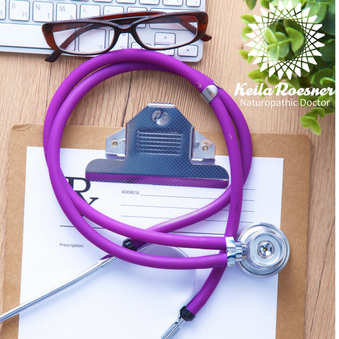
It is a persistent ache-in-your-bones feeling, like walking through mud every day and struggling to do the little things. It is the disorientation of not feeling like yourself for the past few weeks, months or years. It clouds your brain, steals your sense of humour and weighs heavily on your relationships. And then there’s the guilt and self-judgement about why you just can’t seem to get it together. One of the biggest struggles that people with persistent fatigue face is that outwardly they look normal. Coworkers, friends and families may offer “helpful” suggestions about being more organized or going to bed earlier (a great point, but not THE point) or completely fail to understand. Even physicians may struggle to help once the basic blood work comes back “normal”. Lifestyle factors can and do play a massive role, so it is critical to ensure that you are getting enough good quality sleep, eating well, exercising, managing stress and taking good care of yourself. Working with a therapist, registered massage therapist, personal trainer and your health team can be helpful to make sure you’re covering your bases. If you are already addressing these areas and still feel like something is missing, Naturopathic Medicine can be a great solution. The next step is digging deeper and doing a thorough investigation to determine the cause of the fatigue and how these factors might be affecting your overall health. Here are some of the most important lab tests that we run to assess the fatigue you’re experiencing. Ferritin and iron panel – ferritin, % saturation, serum iron and total iron binding
Vitamin B12
Thyroid Panel – a full panel includes TSH, free T4, free T3, reverse T3 and anti-TPO
DUTCH Hormone Test
Autoimmune and Inflammatory Markers – hs-CRP, ESR, ANA, rheumatoid factor, tissue transglutaminase IgG and/or IgA
Organic Acids Test
Other factors to consider: You know yourself best. If you feel that something is off, you are probably right. It is better to know where you stand and choose to work with a health care provider that can offer you the evaluations you need to get to the bottom of things. A thorough investigation is important, but it is even more important to have a plan in place to address what you find. Diet and lifestyle factors like how you eat, how you move, how you sleep and managing your stress will ALWAYS need to be a part of any treatment plan you undertake. It can be easy to get caught up in a complicated regimine of supplements and medications, but focusing on a strong foundation is what really determines your outcome. If you have “tried everything”, have you been consistent enough? Being fatigued IS exhausting and it is only natural to get excited about the next newest thing… but nothing will work if you don’t give it a fair shot. You need a team. The support of a partner or friend or online community can make a world of difference when you are suffering from an invisible illness. Work together with your health care providers to get the right assessments and guidance to help you recover. If you feel unsupported, unheard or like you are bothering your provider, find another professional to work with that will take your concerns seriously. Working with a Naturopathic Doctor to address the causes of chronic fatigue can be invaluable to your recovery by helping you systematically address each of the areas above and make a concrete plan based on YOU. If this sounds like you, I invite you to schedule a complimentary Health Discovery session with me to talk more about your specific concerns. Please share this article with someone you know that is suffering. In health, Click here for more information regarding the tests and services we offer.
References:
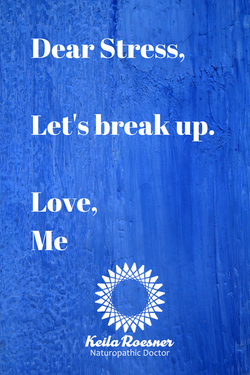 This week a regular patient of mine and I were chatting and she said: "But Keila, I don't have time to exercise, and take my vitamins, meditate, walk, stretch, journal or any of that stuff!". This also wasn't the first time I'd heard this phrase. Often, it's me saying it in my own head. Maybe you've got stuck in the "Busy" trap. It sounds something like, "So, what've you been up to?" "I've just been soo busy!". Newsflash: We're all busy! We're all stressed! This bouncing around from one activity to the next is exhausting. We end up eating on the run, not exercising, becoming sleep deprived and getting short with our loved ones. It is no big secret that stress is associated with insomnia, anxiety, depression, heart disease and even periodontal disease. Yet, we become addicted to that feeling of being indispensable, needed and useful. While the notion of "self-care" may seem self-indulgent to some, really, it's a lifeline. Creating a plan for self care is really about creating practices that benefit your well-being, be it socially, emotionally, spiritually, physically, mentally or financially. Taking time out for yourself allows you to show up more effectively, confidently and rested in the rest of your life. It's about self-preservation. I like to break down self care into three parts: 1. Physical. This should include some daily movement, regular visits with your health care providers, healthy balanced meals, water, plenty of sleep. 2. Mental. Getting things off your chest via talking to someone, journaling, creating a plan. 3. Emotional. Spending time alone to process, as well as being social. Finding an outlet for our emotions that is constructive. I often recommend that my patients create a list of activities that they can do to take care of themselves, from each of these categories.. and then schedule some Non-Negotiable Time with themselves to do some of them on a regular basis. Scheduling is key. Treat it like any other commitment and show up on time. Here are some basics to get you started: 1. Take a 30 minute walk outside, alone or with a friend 2. Turn off the TV, phone and computer 3. Take yourself out for lunch or a coffee 4. Read a book for fun 5. Work out 6. Yoga 7. Call up a friend to catch up 8. Prioritize sleep. Set a regular bedtime and waking time. 9. Spend less time with people that drain you 10. Take a class, join a choir or a team If we can't set aside time for self-care, then we really have to look at our priorities. What can we delegate, or let go of? Really, if we can't care for ourselves, what's the point? The question isn't about not having the time or being able to afford to take care of ourselves. It's about using the precious time we have because we can't afford not to take care of ourselves. Naturopathic Medicine is really all about self care. As a physician, I teach people how to take good care of their bodies and minds, whether it is improving their diet, getting good quality sleep or acting as a sounding board. In many cases, a combination of herbs, supplements and acupuncture can do wonders for that sense of burnout. That same feeling that can drive us towards disease. The bottom line: can you afford to feel sick, tired, and burnt out? I know I can't. If you are interested in improving your energy, getting a good night's sleep and feeling better, you can schedule a free health strategy session with me here. In health, Dr. Keila Grab your FREE copy of my Calm the F Down Self Care Guide here.  My cat, hiding from me. My cat, hiding from me. I got home at 6:30pm, after a long day of work. Angry. Hungry angry. Hangry. Even my cat was avoiding me. I went straight to the peanut butter jar, dug out the chocolate chips and went to town with my favorite sugar + fat snack. There was no way I could wait to make dinner. I needed a fix. It's hard to be graceful eating peanut butter out of the jar. I'm human, I fully admit it. My eating habits had a long way to go when I first started University, starry-eyed and bound for medical school. Over the first two years, I gained 15 lbs, started losing handfuls of hair, got easily overwhelmed and developed terrible sleeping habits. It was a rough go. By the time I started my Naturopathic medical training at the Canadian College of Naturopathic Medicine I had started making some very significant changes to diet. The biggest changes were cutting out processed crap (like the yellow powdered chicken broth that was previously a staple in my cooking), limiting wheat and increasing fat in my diet. Two years ago, however, I really hit the nail on the head. A colleague of mine, Dr. Erica Robinson, had been a big proponent of the Paleolithic Diet for quite sometime and it got me thinking. The Paleo Diet The Paleolithic Diet is based whole foods - lot of vegetables, a modest amount of fruit, lots of healthy fats and high quality protein - and is meant to simulate the way our ancient human ancestors during the Paleolithic era might have ate. At the same time, this style of eating limits ALL grains, beans and legumes, dairy, sugars, processed foods and alcohol. I know, it does sound drastic at first. Why would you do this to yourself??? We, as a species, have evolved over several hundred thousand years eating a certain way - foraging lots of greens, fruits, edible tubers, nuts and seeds, and when we could find it, meat including the higher fat organ meats. We moved a lot more, slept when the sun went down and had a heck of a lot more downtime to rest and play than we do today. It wasn't until the Neolithic era when agriculture really caught on that we started to settle down and dramatically increased the amount of grains and legumes in our diet. We stayed in one place, had a steady diet of grains, legumes and beans in addition to what those ancient ancestors ate. We had food security. Yes, that did happen thousands of years ago, however even that amount of time is only a small blip compared to the many years of eating in the hunter-gatherer style. The argument is that we are genetically evolved to be eating in this ancient, Paleolithic style, and our genetics are still playing a losing game of catch-up to our agriculture loving ancestor's grain and bean-based diet. Our DNA has no hope in hell to catch up with our modern diet full of genetically engineered wheat, corn, soy, processed fats, sodium, alcohol, antibiotic-laden dairy and other "food products". The Standard American Diet (SAD, for short) is forcing us to fight a bloody, uphill battle against our genetics... and it is one that we can't win. Numerous scientific studies have detailed that the SAD diet full of convenience but absolutely lacking nourishment are direct contributors to heart disease, diabetes, strokes, obesity and cancers amoung MANY other concerns. Yep, these are our biggest killers and we keep getting sicker, fatter, tired, depressed and miserable. So what did this peanut butter-loving Naturopath (to be) do? I read a LOT of books, including these: The Primal Blueprint: Reprogram Your Genes for Effortless Weight Loss, Vibrant Health, and Boundless Energy by Mark Sisson Paleoista: Gain Energy, Get Lean, and Feel Fabulous With the Diet You Were Born to Eat by Nell Stephenson The Paleo Solution: The Original Human Diet by Robb Wolf Practical Paleo by Diane Sanfilippo Make It Paleo: Over 200 Grain Free Recipes for Any Occasion - Bill Staley and Hayley Mason Well Fed: Paleo Recipes for People Who Love to Eat by Melissa Joulwan Dr. Loren Cordain's work and these blogs: Mark's Daily Apple NomNomPaleo Paleo OMG The Clothes Make the Girl I got rid of the grains, the sugar, beans, cut out dairy and threw out anything my great-great-great (x50) grandmother would not recognize as food. I increased the amount of produce I ate, set a limit of max 2 servings of fruit, dramatically increased the healthy fats, had high quality protein with each meal and got to work cooking. I seriously upped the quality of nutrition in my already "healthy" diet. I began to walk everywhere, made yoga a part of my day and allowed myself time to relax. I lost the 15 pounds of stress fat I put on through university and med school. I completely cured my insomnia. My acne cleared. My periods got more regular. I stopped losing handfuls of hair. I got used to saying "No thank you" to well-meaning friends and relatives offering me foods that made me feel ill. I felt truly empowered, knowing that I choose to take my health in my hands every day, that there are answers and that feeling ill did not have to be a given. And I was a heck of a lot more pleasant to be around. Are you interested? Book your free health consultation with me to start living the healthy life you know you deserve. “The food you eat can be either the safest and most powerful form of medicine or the slowest form of poison.” - Anne Wigmore Anne, you are right. I choose medicine. Awesome, tasty medicine. Check out how we do it! - Dr. Keila (no makeup Sunday) Xo
Food can be the perfect medicine... or the best poison.Our body does the best it can and can only run off the fuel we give it. While most of us try to eat healthily the majority of the time, sometimes the "good" foods we are regularly recommended can make us feel ill. If we are taking in foods that don't agree with us, regardless of which Food Guide or expert recommends them, our body will mount a reaction in order to tell us that we shouldn't eat it. If we continue to consume these foods, the body turns up the dial until we have to listen. Your Cheat Sheet to Food Reactions:
Timing is everythingOne reason it can be so difficult to identify a food reaction is that we may react hours, days or even weeks after ingesting the food in question. If you tend to eat a highly varied diet or eat the same foods over and over, pin-pointing that one meal can be a challenge, particularly if you started to feel crummy a few days later. Trust your gut..but look for other clues.The gut is the gateway to the rest of the body. If a food reacts in our gut, it impacts not only our digestive function, but the rest of our body as well. In particular, the immune system, neurological and reproductive systems get involved. Symptoms of a food sensitivity can include:
Your symptoms may evolve over time as well. For example, I notice with myself that when I eat gluten I start to feel very sleepy and have an immediate-onset brain fog. If I continue to ignore my body and eat more - I am the first to admit I am very human and not immune to a fresh slice of bread from time to time - I get some pretty intense stomach cramps and constipation. Since I so seldom eat it, I notice this right away. When I was in university on a tight student's budget, I tended to a lot of pasta (it was cheap, quick and filling) I suffered from debilitating sleep attacks plus all those digestive symptoms, weight gain around the middle and acne. Eventually I realized from trial and error that it was worth spending a few extra bucks, saving the gluten/starch binges for a very occasional treat in order to be more productive, focused, energetic and healthy. As you can see, it certainly goes beyond the digestive system! So how do I know if there's a problem... and what can I do about it?If you're asking yourself this, you've come to the right place!
Working with your family doctor or allergist, standard allergy testing is often recommended to test for IgE-type reactions. Treatment then involves taking an antihistamine (Reactine, Benedryl etc.), epinephrine (eg. carrying an Epi-pen) and/or complete avoidance. However, by now you will realize that IgE reactions are just a small part of the picture. Here is how I treat food reactions:
If you or someone you know is suspects that a food reaction might be contributing to feeling unwell, I would like to offer you a complimentary 15 minute consultation with me to discuss your concerns. 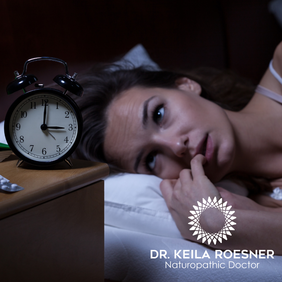
It was 2 pm and I was sitting in my first year physiology class at the Canadian College of Naturopathic Medicine.
I knew that it was important to stay awake but the more I tried to focus on my professor's words, I Just. Kept. Falling. Asleep. It felt so good, telling myself that I would just rest my eyes while listening to how the kidneys are supposed to work. Unfortunately I would wake with a gasp about every two minutes. I always blew my cover. I had told myself that I was just tired, that I didn't need to see anyone. I knew I didn't want the zombie pills that many of my family members were taking, you know, being a first year Naturopathic student and all. I needed help. That was the first time that I consulted a Naturopathic Doctor. Insomnia is one of the most common reasons for people to seek health care. Indeed, the vast majority of the patients I see have some sleep issues and are sometimes surprised to be told that they have insomnia. People with insomnia often have difficulty either falling or staying asleep, wake up too early and may feel un-refreshed in the morning. Insomniacs are also more likely to develop depression, anxiety, high blood pressure, heart disease, insulin resistance, diabetes, be overweight or obese, report substance abuse, have poorer cognitive performance and memory and take sick days from work. In other words, many of us are not sleeping and it is a problem. So what did I do? I learned the hard way. I know what it is like trying to function when you need to be at your best...and failing. I also learned that a few simple hacks can make all the difference. The Essentials for Good Sleep and Preventing Insomnia, Naturally:
If after implementing all of these measures consistently you are still having trouble sleeping, know that there are many options to help support you. As a Naturopathic Doctor, my role is to help identify the factors that may be contributing to your poor sleep, and helping you to create a treatment plan that is tailored to suit your lifestyle. I use a combination of therapies with great success to get my patients sleeping well. If you are interested in how I can help you, you are welcome to book a Health Discovery Session with me. I have helped many people, just like you, to get a good night's rest naturally. And me? I sleep like a baby now. |
Top 75 Naturopath Blogs & Websites For Naturopathic DoctorsAuthorDr. Keila Roesner is a Naturopathic Doctor. When not treating patients she is also an enthusiastic barefoot-strolling, music-loving, yoga-doing kitchen wiz - who also happens to be a wrestling fan. Categories
All
|
Let us take you from hormonal to whole.
|
Dr. Keila Roesner, BHSc ND
Naturopathic Doctor, Hormone Warrior and Your Wellness Cheerleader 247 Church Street, Stratford ON N5A 2R7 (519) 273-0900 [email protected] |
|

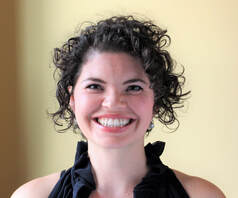









 RSS Feed
RSS Feed